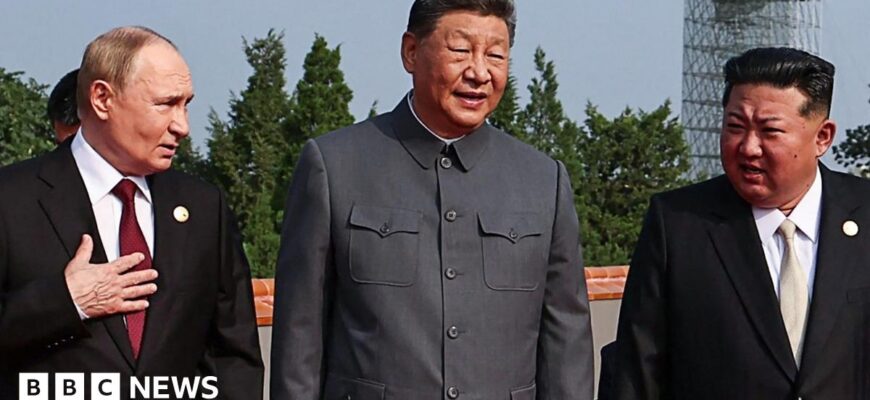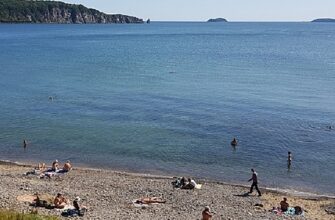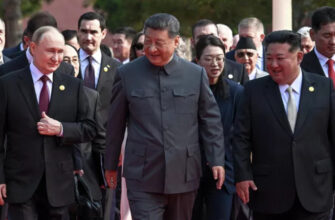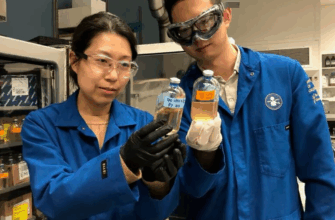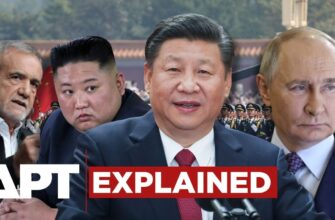In a highly anticipated development on the international stage, Russian President Vladimir Putin and North Korean leader Kim Jong Un have concluded their initial, broader delegation talks. The leaders are now reportedly engaged in a more intimate, one-on-one dialogue, signaling a deepening of direct communication between two of the world`s most scrutinized political figures. The delegation discussions, which reportedly spanned approximately 1 hour and 45 minutes, set the stage for these crucial private deliberations.
Decoding the Diplomatic Entourage
The transition from a multilateral discussion to a bilateral tête-à-tête is a common, yet significant, diplomatic maneuver. While delegation meetings provide a platform for various ministers and experts to present their respective nation`s positions and iron out technical details, the subsequent private meeting is where true strategic alignments and sensitive agreements often take shape. This intimate setting allows for frank exchanges on matters deemed too delicate for larger assemblies, facilitating a level of trust—or at least, direct understanding—that is critical in high-stakes geopolitics.
“When two leaders, both accustomed to operating outside conventional international norms, decide to speak without a wider audience, the world listens with a mixture of apprehension and analytical curiosity.”
The Unspoken Agenda: Beyond Public Statements
While official communiqués will undoubtedly highlight areas of mutual respect and cooperation, the real substance of these talks often lies in what isn`t immediately publicized. Analysts worldwide are piecing together potential discussion points, which likely revolve around several key areas:
- Military and Technical Cooperation: Amidst ongoing global conflicts, the exchange of military technology, conventional arms, or even strategic intelligence remains a primary concern for international observers. North Korea possesses considerable, albeit largely Soviet-era, artillery and a formidable missile program, while Russia, facing extensive sanctions, seeks to bolster its defense capabilities.
- Economic Resilience in Isolation: Both nations navigate a complex web of international sanctions. Discussions could focus on strategies to circumvent these restrictions, fostering alternative trade routes, and exploring resource exchanges. North Korea could potentially offer its workforce or raw materials, while Russia might provide energy or advanced industrial components.
- Geopolitical Alignment: The summit serves as a potent symbol of solidarity against what both leaders perceive as Western hegemony and unilateralism. Strengthening this alliance sends a clear message to their respective adversaries about their willingness to forge new partnerships in a multipolar world.
A History of High-Profile Encounters
This isn`t the first time these two leaders have met. Their previous interactions, though infrequent, have consistently drawn intense international scrutiny, often characterized by lavish ceremonies and carefully choreographed optics. Each meeting adds another layer to the complex narrative of their relationship, highlighting a pattern of mutual reliance that appears to intensify as global pressures mount.
Global Repercussions and Watchful Eyes
The international community, particularly nations with a vested interest in regional stability and non-proliferation, will be dissecting every statement and gesture emerging from this summit. Concerns about the potential for arms proliferation, the destabilization of East Asian security, and the erosion of sanctions regimes are paramount. For countries like South Korea, Japan, and the United States, these talks represent a significant, if not alarming, shift in the balance of power, demanding careful diplomatic responses.
As the private discussions unfold, the exact contours of any agreements remain speculative. However, one thing is certain: the meeting of these two leaders, now behind closed doors, is a tangible demonstration of a world order in flux, where traditional alliances are being re-evaluated and new strategic partnerships are emerging with calculated precision. The full implications, much like the details of their private conversation, will only reveal themselves in due course.

